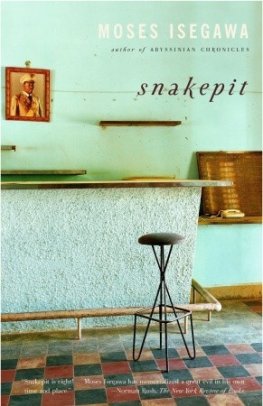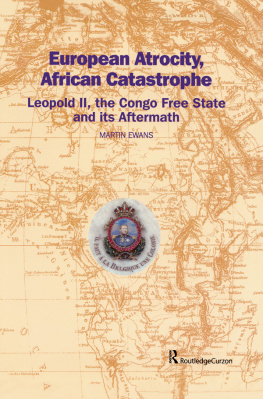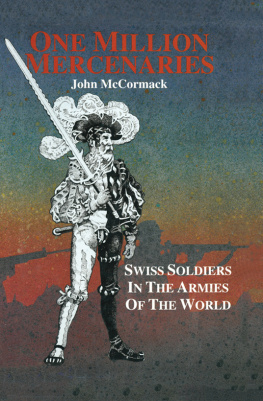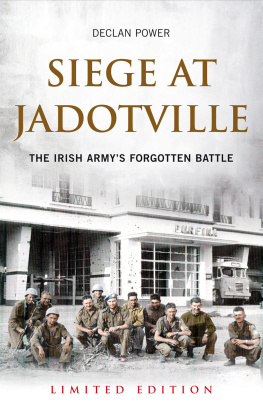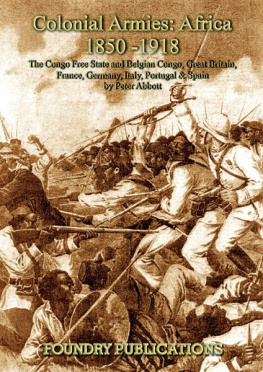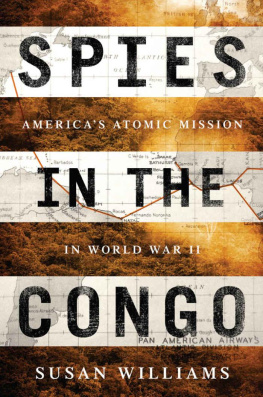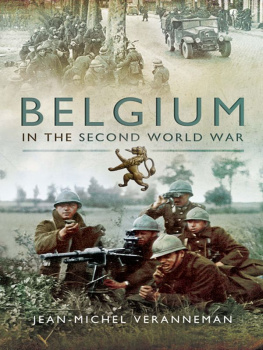
For my parents
CONTENTS
An Introduction
Bruges, October 1999
Somewhere in this Belgian city of canals and rain and gothic spires, 84-year-old Grard Soete is finally ready to tell the truth about a murder.
A crew from French-language television station RTBF are in Soetes home to catch the moment on film. Cameras, cables and tripod lights crowd his living room. An interviewer makes notes on a clipboard. The crew huddle around a monitor.
Leathery and bald, the former colonial police commissioner shows the camera a small wooden box and spills its contents on the coffee table. Two off-white cubes, like eroded dice, roll around.
They believe that he will come back from the dead, he says.
Soete laughs.
If he does, hell have to do it without these.
The off-white cubes are human teeth.
***
The Democratic Republic of the Congo is an artificial state, created by Europeans drawing lines on a map in the nineteenth century.
Almost all modern African nations are the same. Only a few bear any resemblance to their pre-colonial existence. Rwandas mountain borders have maintained continuity between its ancient kingdoms and current republic. Ethiopia was occupied only briefly by outsiders and its territory has changed little since the days of Emperor Menelik II. The rest of the continent got diced up by Europes nineteenth-century land grab like an onion on a chopping board.
In February 1885, King Lopold II of Belgium helped himself to a chunk of Central Africa. The Congo Free States 900,000 square miles made it the largest country on the continent and twelfth largest in the world. It stretched from the Mountains of the Moon in the north-east, down to the red dirt of Katangas southern copper belt, and as far west as the narrow snout of land where the River Congo poured into the Atlantic Ocean with such force it carved a 100-mile long trench in the seabed.
Over 250 tribes called this territory home when Lopold created the Free State. The new nations borders sliced some tribes in half, bisecting the Bakongo along the Angolan frontier and stranding many Lunda in Rhodesia. It fenced together others who had been enemies for centuries. Lopold did not care about ancient feuds between Lunda and Baluba, Baluba and Lulua, Lulua and Basongye. The hatred remained, old hands reaching for old throats.
Europeans, who put nationality above everything, never appreciated the importance of tribal loyalty. For many Congolese, it governed marriage, morality, friendships and war. If a Lulua asked another Lulua for money he would get it, even if they were strangers. If a Lulua were stupid enough to ask a Baluba, the panga machetes would swing.
The spilt blood would have meant nothing to the Belgian king. His Congo Free State was a moneymaking machine, rich in natural resources. Its most disposable parts were human. Lopolds soldiers worked the Congolese like slaves and crushed any resistance by burning villages and killing families.
In 1908, international outrage forced Lopold to hand over the country to professionals in the Belgian government. Their rule was less violent but more paternalistic. They treated the natives like children, justifying it with the phrase dominer pour servir (dominate to serve). The new administrators held the Congo together for fifty-two more years, milking its assets and telling themselves they were helping Africa, until Brussels reluctantly granted independence in June 1960.
When the Congo fell apart in a pandemic of army mutinies and gang rape a week after going solo, Europeans blamed the unwieldy size of the new nation and its warring tribes. The July secession of Katanga, a rich mining province in the south, seemed proof that the Congo was too big to function as a country. Africans had a simpler explanation. They accused Belgium of masterminding the break-up to protect its investments. The term neo-colonialism, a continuation of empire through intrigue and espionage, was born.
Also in the mix were Soviet technicians at the controls of Ilyushin Il-14 transport planes, CIA agents hiding behind dark glasses, United Nations peacekeepers from a hundred countries and air-conditioned Swiss bank vaults that swallowed up diamonds and francs, no questions asked.
And one thing more dangerous than the rest put together: white men with guns.
***
If you were thirsty in Brussels, perhaps in the mid 1980s, there was always 42 rue du March au Charbon. Officially called La Renaissance, regulars knew it as Bar Simba, the only place outside Katanga you could get a Simba beer, straight from the Elisabethville brewery.
Today it is a gay bar, but Bar Simba used to be a military pub famous for giving free drinks to any soldier who donated his cap badge. Green Berets, SAS and Navy SEALs had all dropped by to take advantage of the offer.
Not every customer was a career soldier. If you limited yourself to a few Simbas and stayed off the Chimay Trappiste, a lethally strong black beer, you might notice the map of Katanga province on the wall. You might see the similarity between Charles Masy, the bald and moustached owner, and the slim, crop-haired young man in the photographs hanging by the bar. You might overhear some of the regulars talking about their adventures in Angola, Biafra, the Congo and Yemen, throwing around words like Les Affreux and Les Mercenaires .
It would not take you long to realise that Bar Simba doubled as a hangout for old mercenaries. No fighting for them any more, but a lot of talking. Veterans of Africa, like Masy, argued bitterly about the United Nations, the USA, the USSR. Old grudges from Congo politics lived on: the settlers versus the merchants, the Walloons versus the Flemish, the Belgians versus the French, the British versus the rest.
As the evening came in and Masy helped himself to a Simba or two, he would tell his patrons about the time he was arrested by the Rhodesians in 63 and questioned about his adventures in Katanga.
Finally, they asked me: How many did you kill? I was fed up with their games so I said: Not enough!
And through the rest of the night, the refrain from drunken, middle-aged men. Les Mercenaires . Les Affreux . We could have won. You understand? We could have won. If it hadnt been for the UN bastards. For the American bastards. For the bastards in Brussels. For the African bastards. We could have done it. We could have made a new country.
That new country was Katanga. The man who hired them was Mose Tshombe, a Congolese politician. To some, a hero of national self-determination; to others, a villain, responsible for those unplugged teeth Grard Soete kept in a wooden box.
***
Mose Tshombe was born to be a businessman. Just not a very good one. The son of a tough-minded Congolese capitalist, Tshombe went bankrupt so often before independence that people in his home province of Katanga stopped counting. Short, happy, with a face as round as a dinner plate, the millionaires son always tried to bounce back. Import and export, a chain of general stores: his father had to bail him out every time. It was not until the 1950s that Tshombe discovered his real talent lay in politics. Katangese politics.
Katanga had always been different. Rich in copper, tin and uranium, the vital ingredient in atomic weapons, the Congos southern province only joined the rest of the country six years before the Second World War. It felt separate, with its 32,000 white immigrants (more than any other province), its massive mineral wealth and its social services provided by Union Minire, the mining corporation that had built modern Katanga from the ground up and had no love for the government in the national capital Lopoldville. It even looked different. Where the rest of the country was covered in lush jungle, Katanga had red dirt roads, scrappy patches of vegetation and parched baobab trees.
Next page

